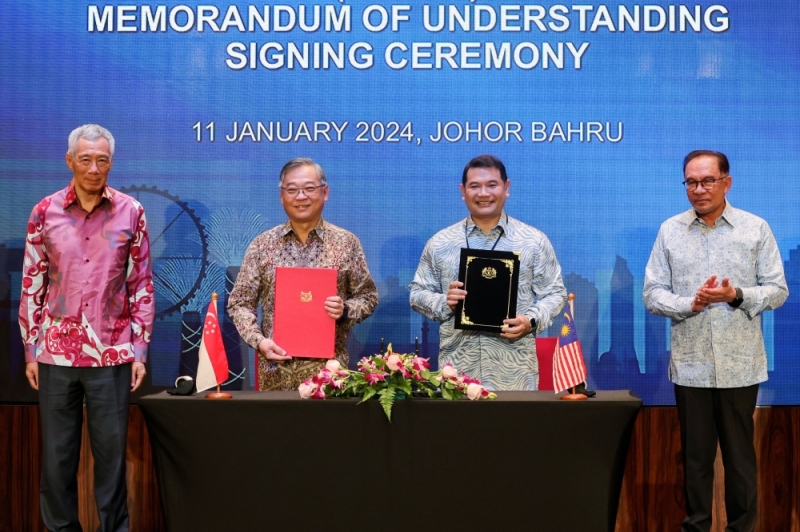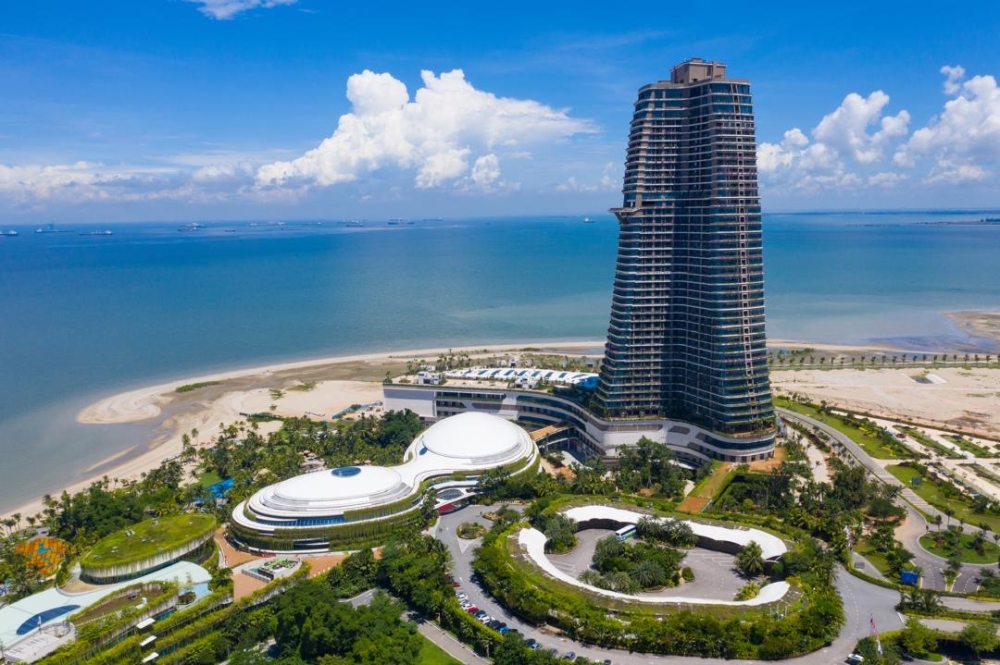
JOHOR BARU, — Duty-free island status for Forest City’s Pulau Satu could be another piece in the policy puzzle that already includes the state’s Special Financial Zone (SFZ) and the Johor-Singapore Special Economic Zone (JS-SEZ).
Experts said the move would spur ancillary services and industries needed to drive economic growth within the 2,833-hectare mega project and complement Johor’s overall economic potential.
KGV International Property Consultants Sdn Bhd executive director Samuel Tan said SFZ initially appeared to be an ambitious undertaking as it would need to independently draw support firms to the area.
“However, with Pulau Satu’s duty-free status in Forest City, this can hopefully overcome the problem,” he said when contacted by Malay Mail recently.
Tan also said the realignment of the proposed Kuala Lumpur-Singapore high-speed rail (KL-SG HSR) project to Forest City could be a complete game-changer if it were to tie in with Pulau Satu’s duty-free status.
Other infrastructure projects proposed for the area could “turn Forest City into a major transportation hub,” he said, adding that water links such as ferries to Singapore, Indonesia and other parts of Malaysia will also add further value to Forest City.
Tan also proposed for a special category for JS-SEZ and SFZ applicants under the Malaysia My Second Home (MM2H) programme that, if implemented swiftly with other planned developments, would revitalise the multibillion ringgit project.
Johor Real Estate and Housing Developers’ Association (Rehda) chairman Lindy Tan concurred with Tan, adding that the duty-free status for Pulau Satu in Forest City is a welcome addition to the positive developments in Johor.
She said the latest announcement dovetailed with the JS-SEZ and SFZ, with the property industry anticipating details of the special zone’s agreements by this year.
Tan, who is also property developer BCB Berhad executive director, said the initiatives, along with establishing Pulau Satu as a duty-free island, will make a compelling case for the Johor real estate market.
“These initiatives will collectively create a strong magnet for businesses and investors, fostering economic growth across various sectors,” she said.

However, South Johor SME Association adviser Teh Kee Sin said Pulau Satu's synergy with the JS-SEZ would be indirect as the zone is based on economic collaboration in selected sectors.
“Nevertheless, any positive growth within the area is important as it will provide investors with confidence,” he said.
Economist Nungsari Ahmad Radhi went further to suggest a customs union with Singapore to unlock the full potential of the project, which he said hinged on the free flow of goods, capital and people between Singapore and Johor.
Nungsari said Pulau Satu’s duty-free status in Forest City will still see secondary effects with demand for consumables, as well as durables such as housing.
Last year, Prime Minister Datuk Seri Anwar Ibrahim announced the SFZ in Forest City with incentives including multiple entry visas, and special income tax rates.
In October the same year, the prime minister and his then Singapore counterpart Lee Hsien Loong jointly announced the JS-SEZ, with a memorandum of understanding signed by the two countries early this year.
With the establishment of the JS-SEZ and Forest City SFZ, the government projects a faster economic growth and for Johor to be a developed state by 2030.
The state government targets to raise Johor's gross domestic product (GDP) by 7.8 per cent per annum to RM260 billion by 2030, from RM142.1 billion in 2022 and pre-pandemic average growth rate of 5.1 per cent between 2016 and 2019.
Between 2022 and 2023, the Johor state government approved RM113.7 billion in investments, which was 19.0 per cent of Malaysia's total approved investments of RM597.2 billion in the same period. - malaymail


No comments:
Post a Comment
Note: Only a member of this blog may post a comment.